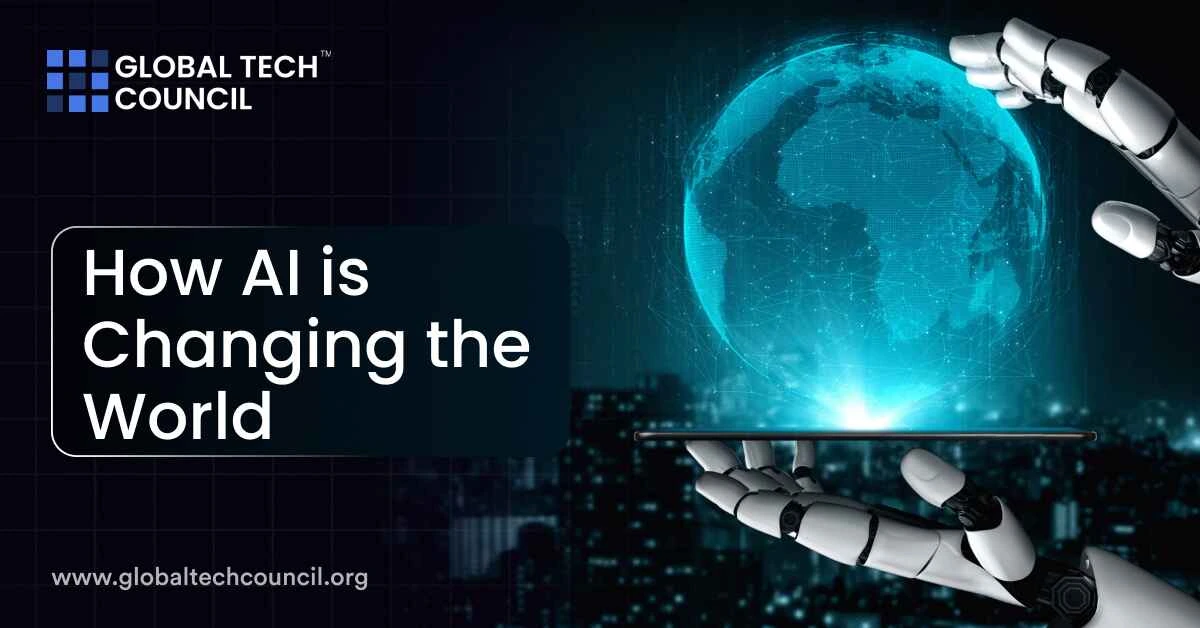Artificial Intelligence (AI) continues to impact various industries, bringing noticeable changes across multiple fields. From healthcare and education to business operations and manufacturing, AI has moved out of research labs and is now tackling practical problems that we face every day.
AI in Healthcare
In healthcare, AI is leading to significant improvements, particularly in how doctors diagnose and manage patient care. One major advancement is AI’s role in detecting diseases, including cancer. Systems like Google’s DeepMind have been helping radiologists become more accurate in their diagnoses. For example, DeepMind’s technology is now used to spot breast cancer more precisely than human doctors, leading to earlier detection and better treatment options. This is especially helpful in easing the strain on healthcare workers, who often have to deal with heavy workloads.
Another area where AI is making strides is with health-monitoring wearables. Devices like the Fitbit and Apple Watch are now equipped with more advanced AI, allowing them to monitor health data in real time. These devices can send warnings when they detect something unusual, like an abnormal heartbeat. These gadgets are expected to become even better in the future, making personalized healthcare easier for everyone to access.
AI certifications from the Global Tech Council like the CAIE Certified Artificial Intelligence (AI) Expert® can help you understand more about how AI is impacting the world.
AI in Education
Education is also seeing a lot of changes thanks to AI. Schools and universities around the world are using AI-powered tools to create learning experiences tailored to individual students. Online platforms such as Coursera and Duolingo are examples of how AI can offer personalized course recommendations and adapt learning materials based on how fast a student progresses.
One exciting tool being tested is Khan Academy’s AI tutor, which uses large language models (LLMs). This tool can provide students with immediate help, offering explanations for concepts they find difficult. These AI-powered tutors can track student progress and adjust the teaching methods when needed, which leads to better outcomes for learners. At the same time, these tools lessen the administrative burden on teachers, allowing them to concentrate more on teaching directly.
AI in Business Operations
Companies all over the globe are turning to AI to improve their efficiency and productivity. AI tools are helping businesses manage daily tasks more smoothly. For instance, platforms like Asana now use AI to organize tasks and suggest ways to improve workflows based on previous patterns. This allows companies to prioritize tasks that matter most, reducing the need for manual input and enhancing productivity.
Email management is another area where AI is making a difference in business settings. Tools such as SaneBox and Mailbutler can automatically sort emails, mark important ones, and even draft responses. This allows employees to focus on more meaningful work rather than spending too much time managing their inboxes. Companies that use AI in their operations are seeing faster decision-making and improved collaboration among their teams.
AI in Manufacturing
AI is becoming a crucial part of manufacturing, helping businesses improve their production processes and save money. AI-powered robots are now taking on repetitive jobs, allowing human workers to handle more complex tasks. For instance, BMW has started using AI on its production lines, where robots help with welding, moving materials, and inspecting the quality of products. These machines work with greater precision, reduce errors, and eliminate the need for slow, manual inspections.
In the logistics sector, AI is helping to make supply chains more efficient by predicting demand and managing stock levels better. Companies like Amazon use AI to foresee what customers will want and adjust their stock accordingly, ensuring that products are always in supply without creating waste from overstocking.
Consider becoming a Certified Artificial Intelligence (AI) Developer® to build efficient AI solutions.
AI for Personal Assistance and Smart Decision-Making
AI-driven virtual assistants are becoming more popular, both at work and in everyday life. Tools like OpenAI’s ChatGPT and Google’s Bard are being used more frequently across different industries. These assistants can help with everything from creating content and managing schedules to assisting with decision-making by analyzing real-time data. In addition to this, businesses are using AI to make smarter decisions. AI algorithms look at past performance data, customer behavior, and market trends to provide insights that help shape business strategies.
AI-based analytics tools have also become widely used. These tools help companies make quicker, data-backed decisions. For instance, in the retail industry, AI is used to study buying trends, allowing businesses to adjust their pricing strategies to keep customers satisfied while maximizing profits.
AI and Ethics
As AI becomes a more significant part of our lives, concerns about privacy, bias, and ethics are on the rise. For example, in healthcare, questions are being raised about how personal health data is being used. AI relies heavily on large amounts of data, and this has led to worries about how safe and private personal information really is. To tackle these concerns, governments and organizations are working on new regulations to ensure AI is used responsibly. The European Union’s AI Act, set to be enforced soon, is one of the most detailed AI regulations. It will address issues such as fairness, transparency, and accountability.
Final Thoughts
AI is influencing many important areas of life, bringing practical benefits to healthcare, education, business, and manufacturing. It helps professionals make better decisions, improves productivity, and offers more customized services. However, as AI continues to grow, it is important to balance progress with ethical practices, making sure AI remains safe, fair, and transparent. AI is already changing how we live and work, and it looks like these advancements will keep expanding as time goes on.
